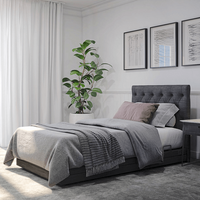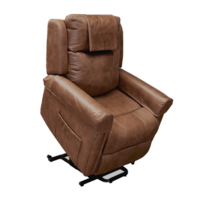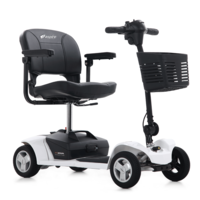Independent living and Australia’s aged care system
When we talk about independent living, it’s not about doing everything yourself. What it actually means is getting the right support so that you can continue to live in your own home and do the things that you want to and that make you happy.
This is an important distinction, according to Carol Wilkinson, a Registered Nurse and the author of My Parents Are Ageing, What The Heck Do I Do?, a guide to Australia's aged care system to support older loved ones at home.
Carol explains that a common mistake is that people think about independent living in the context of your 30s or 40s. But for people with ageing parents, it’s not about them being able to do all the things to manage a household and take care of themselves on their own. Instead, it’s about optimising independence in the context of declining function or impaired mobility.
The other mistake, says Carol, is that when people hear aged care they automatically think about a nursing home or residential care.
“When I tell people I’m an aged care navigator, they’ll say something like ‘Oh, my mum went into a nursing home’. And I’m like, no there’s a lot of programmes within aged care designed to keep people at home. But that information isn't widely known or people don’t know where to find out about it.”
For people with an older parent, this lack of information can also impact the way they approach their loved one to talk about getting more support. Carol encourages people to broach the conversation early, rather than waiting until it’s evident their parent needs more support.
“It takes many months to get into and through the [aged care] system to receive coordinated support or access to the programmes that will allow people to restore their function, wellbeing and independence.”
Carol encourages people to have a casual one-to-one conversation with their parent, rather than a more formal sit down with the whole family. And instead of going in with solutions, speak with your loved one about your observations, then ask them to share their own insights about the things they’re able to do and where they may want help.
And also point out that support doesn’t mean having someone with them all the time.
“The older person will often say that they don’t want strangers in their home. So I say to the adult children, well you could start with having someone in to mow the lawns. That way, they stay outside the home and your parents might feel less threatened.
“Or you could start with some domestic assistance for the bigger tasks. You know there can be guilt and shame if someone can't keep their house as clean and tidy as they used to. But I suggest that they bring in a cleaner to do some of the bigger jobs, say if you can't get up on the ladder and clean the fan anymore.
“So starting with those bigger jobs that are less confronting to someone. And then surprisingly, many older people actually look forward to having the lawn mowing or the cleaning person come to their home every week. And from there, you can start introducing other support.”
One of the biggest hurdles to getting independent living support is simply knowing what’s out there. As a result, many adult children will take on the financial and time burden of caring for their parent themselves. But this can lead to burnout – a major problem within the carer community.
While the My Aged Care website provides a lot of information, it can be overwhelming and not necessarily clear what people may be eligible to receive or how to move up within the different levels of support.
This is what prompted Carol to write her book on navigating the aged care system in Australia. It’s written for people with ageing parents who want to know how they can get the right type of support to help them maintain their independence.
It also provides insight into the different types of government funding available and how to prepare for an assessment.
She emphasises how important it is to prepare for your initial contact with My Aged Care, by having a clear understanding of the informal support you might be providing your loved one and what type of support you’re looking for.
“When I say that to people, sometimes they can get a bit overwhelmed. But then I say, ‘Okay, imagine if you weren’t there [providing support]. Could mum remain living at home?’ And they say ‘Oh, actually I’m not sure that she could.’ And that’s what you have to convey when you contact My Aged Care to get assessed.”



























